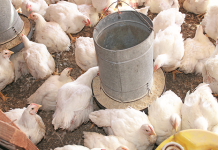The cry for jobs from our talented youth is a sore point for me. There’s nothing that tears my heart apart like seeing lines of men outside factory gates or on street corners looking for work. But while mulling over these issues, I got to thinking about how some people nonetheless manage to make the best of a bad situation.
And this brought to mind my experience visiting Dharavi. Located in Mumbai, India, and covering 175ha, Dharavi is home to more than a million people, and one of Asia’s biggest slums.
There is squalor, dirt, over-crowding, and living conditions are awful, but Dharavi is also a business hive. While preparing for sightseeing, I was sternly instructed, “wear long pants, closed shoes, preferably takkies, and no cameras”. Within a few minutes of entering Dharavi, I knew why these restrictions were necessary, given the open sewers, low-hanging live electricity wires and narrow passageways that challenged my African figure.
Yet Dharavi is also home to numerous businesses with an annual turnover of around US0 million. Thriving small-scale industries produce embroidered garments, export-quality leather goods, pottery and plasticware. There are also agri-businesses, selling goats, sheep and chickens. But the two ventures that impressed me most were the potters and tanners.
The potters are mainly from Gujarat and actually import the raw material they use for their pots – mud and some type of cotton waste – from their home state.
Dharavi’s tanners are the best in the world, said my passionate tour guide. “They know their trade so well they can tell you about the state of the animal from which the hide came,” he said. “They can tell if it was sick – and for how long. They can also tell if it died of natural causes or was slaughtered, just by touching and smelling the hide.”Leather goods from this place are exported around the world under high fashion brand names.
Dharavi’s residents sleep, eat, work and innovate in this slum. They make a living using traditional skills and those acquired on the job.I was reminded of the saying “if life gives you lemons, make lemonade”. I witnessed the triumph of the human spirit over circumstances. If it can happen there, then why shouldn’t it happen here?











